 Expert's opinion
Expert's opinion
Expert's opinion
The article is a subjective view on this topic written by writers specializing in medical writing.
It may reflect on a personal journey surrounding struggles with an illness or medical condition, involve product comparisons, diet considerations, or other health-related opinions.
Although the view is entirely that of the writer, it is based on academic experiences and scientific research they have conducted; it is fact-checked by a team of degreed medical experts, and validated by sources attached to the article.
The numbers in parenthesis (1,2,3) will take you to clickable links to related scientific papers.
Can Depression Make You Sick? Here’s The Answer In 2024
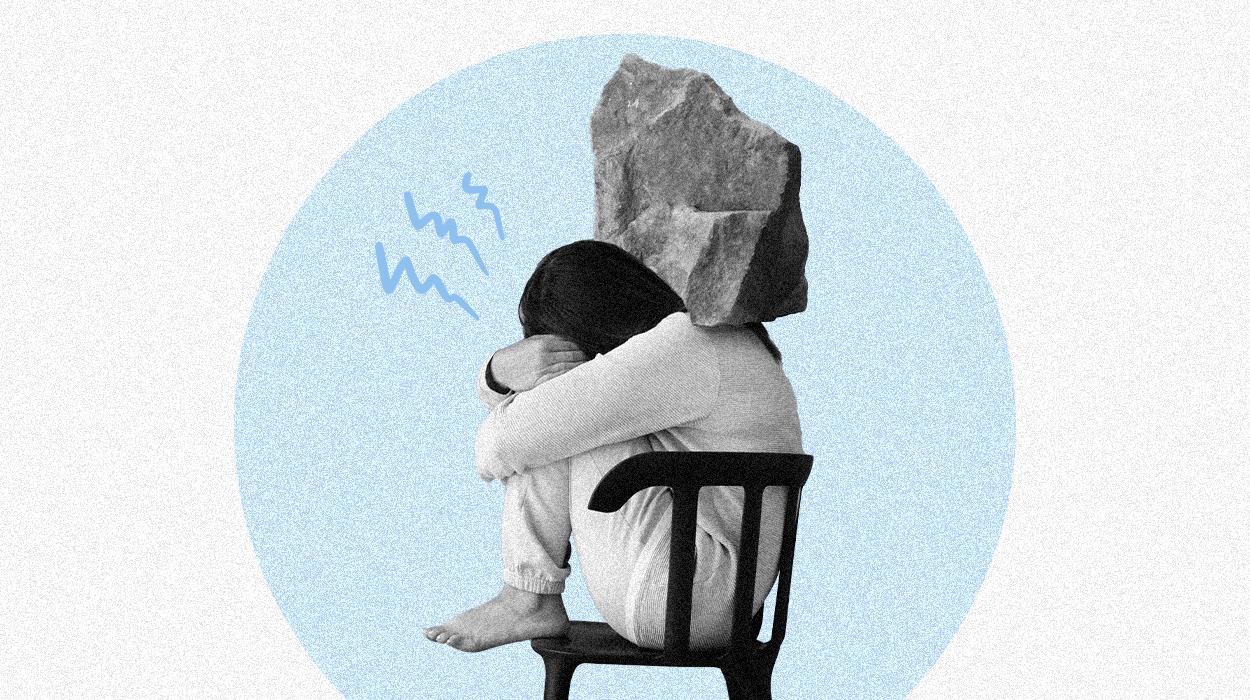
Many people recognize depression as a mental health condition, but can depression make you sick physically as well? Depression is a complex condition that affects many aspects of one’s health and social life. It varies in severity from person to person and can cause mild to severe health problems.
People who are depressed commonly suffer from mood disorders and exhibit symptoms like remorse, a quick temper, anxiety, and a lack of purpose. While most people are aware of depression’s emotional symptoms, few are aware of the physical impact it can have on its victims.
When emotional and physical symptoms of depression coexist, they can worsen and prolong stress episodes. This level of depression could severely harm victims’ lives and make the depression harder to treat.
When dealing with depression, it’s important to know the physical signs of this lowered mood and when you need to see a doctor.
Can Depression Make You Sick?
Yes. Depression, if left untreated, can impair the immune system, and cause weight loss or gain, pain, insomnia, headaches, gastrointestinal complications, and cardiovascular problems, all of which deteriorate health.
How Can Depression Make You Physically Sick?
Physical symptoms can occur alongside emotional symptoms, but how can depression make you physically ill?
According to research, depression, and physical pain are triggered by the same neurotransmitters, norepinephrine and serotonin.[1] Consequently, antidepressants are designed to increase the levels of serotonin and norepinephrine in the brain. This may be the preferred treatment for depression with physical symptoms.
Pain in the limbs, joints, or back can be caused by depression. It may also cause gastrointestinal problems, reduce sleep quality, influence appetite, cause fatigue, and interfere with psychomotor activities.[2]
Furthermore, one of the primary reasons depression is challenging to diagnose is that most patients seeking treatment report physical symptoms such as pain and vague aches, diverting attention from the underlying psychological condition.
Physical Symptoms Of Depression
Can depression make you sick? Both the physical and emotional symptoms of depression are interdependent. Here is how they manifest:
Pain
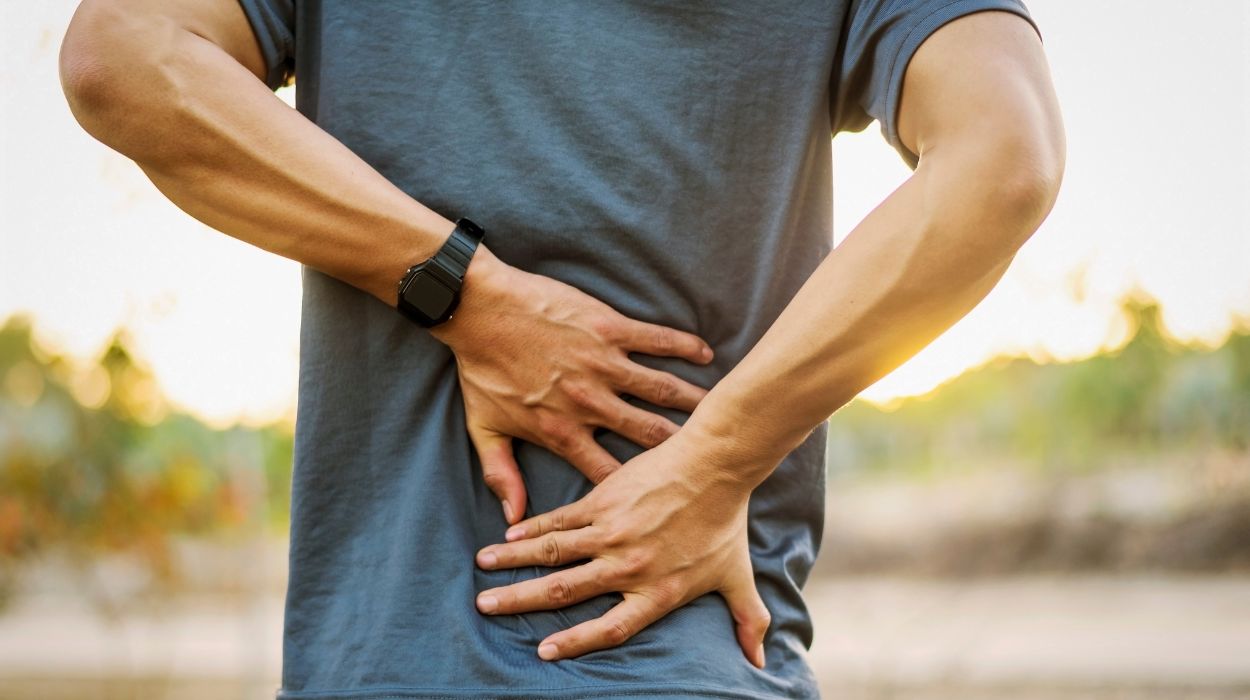
Pain can be caused by depression and vice versa. When the two happen simultaneously, they can accelerate each other to dangerous levels if not managed properly.
Depression pain[3] causes headaches and affects the back, limbs, and muscles. Pain may be the only or one of several early signs of depression and can be caused by serotonin and norepinephrine dysregulation in the brain circuitry.
Depression has also been shown to alter pain perception, increasing the perception of pain intensity. Because of depressive symptoms such as fatigue, inactivity, and a lack of motivation to exercise, you may develop muscle and joint pain coinciding with other discomforts.
Insomnia
Sleep deprivation affects depressed people, including difficulty falling asleep, frequent sleep disruptions, and generally poor quality sleep.
Depression fills a person’s mind with negative thoughts, which may cause anxiety, especially at bedtime. Bedtime offers a playground for negative thoughts as there is less environmental disruption and distraction from these racing intrusions.
Stress affects specific brain areas and chemicals, triggering a fight or flight response that prepares the body for optimal performance in times of danger by increasing speed and strength.
This eventually leads to high blood pressure and heightened awareness, making it difficult to find or sleep fully. When insomnia joins the symptom set, it hastens the onset of depressive reactions such as headaches, stress, anxiety, and a weakened immune system.
Headaches
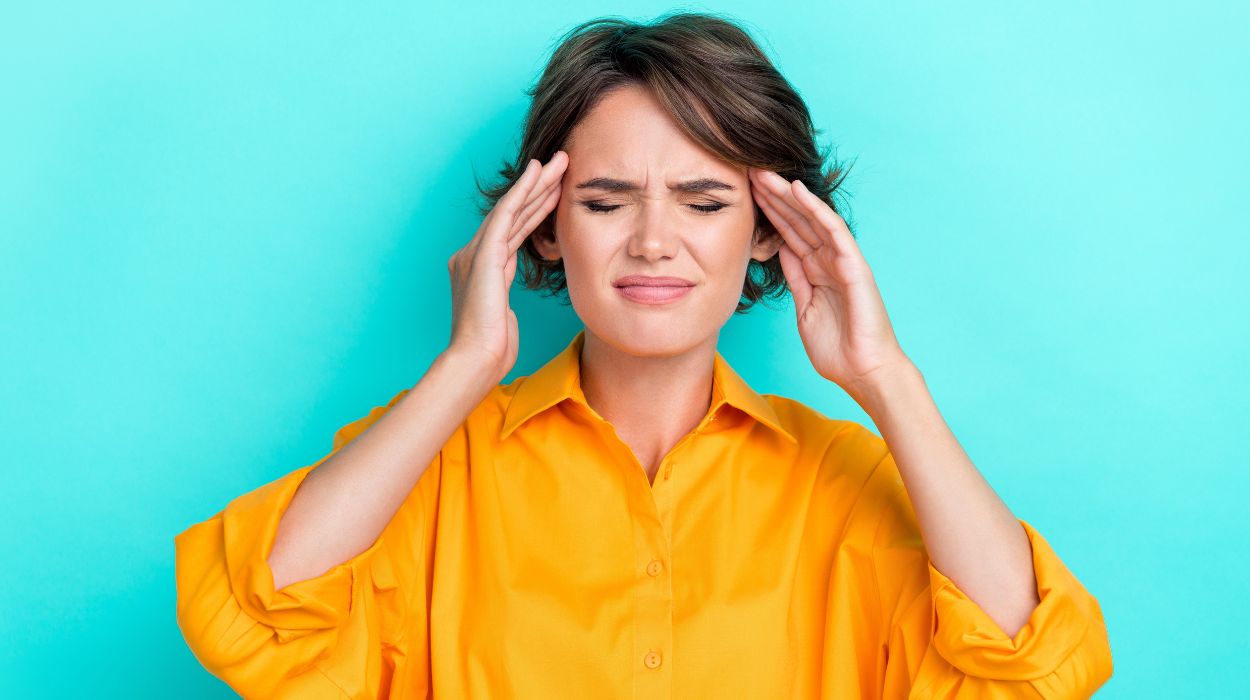
Many depressed people suffer from frequent headaches. Even if it does not cause headaches, depression can worsen headaches by lengthening their duration, intensity, and frequency. Other depression symptoms, such as sleep deprivation and anxiety, may also exacerbate headaches. Light sensitivity may become more intense and bothersome.
Fatigue
It is unclear how depression fatigue occurs, as it differs from typical fatigue, which can be alleviated by getting enough sleep or rest.
However, sleep problems can contribute to depression and fatigue.[4] Poor norepinephrine and dopamine management may also contribute to the fatigue experienced during a depressed mood.
Gastrointestinal Complications
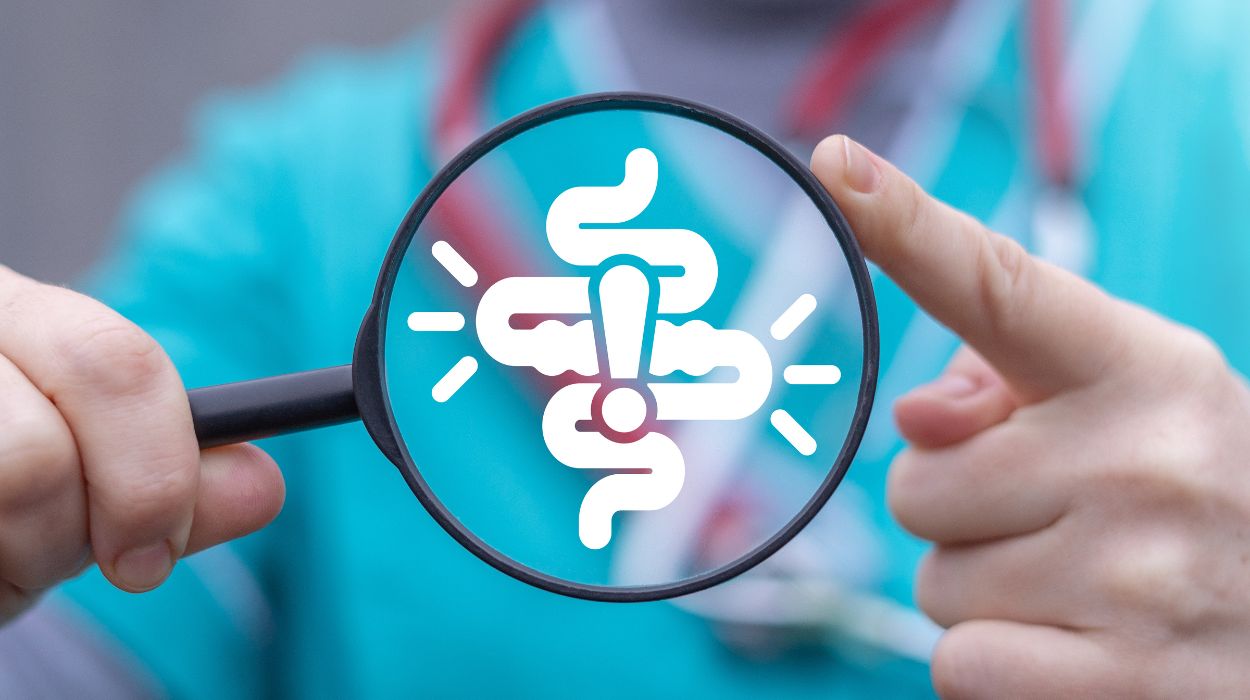
Can depression make you sick? Stress and depression can both cause an increase in stomach acid production. This increase in stomach acid can lead to ulcers and irritable bowel syndrome in severe cases. Depression and stress hormones can cause nausea, diarrhea, and constipation by influencing gastric emptying, gut sensitivity, and GI tract movements.
Some research has also linked depression to decreased good bacteria[5] that protect the gut. Poor gut health jeopardizes many health functions, including immunity, leaving you vulnerable to illness.
Cardiovascular Complications
Depression can also raise blood pressure and increase the risk of heart attack, heart disease, or stroke. The fight or flight stress response hormones cortisol and adrenaline[6] rise during depression, putting one’s heart rate and blood pressure at risk.
High blood pressure, irregular heart rhythms, and artery damage can all be symptoms of underlying depression.
Weakened Immunity
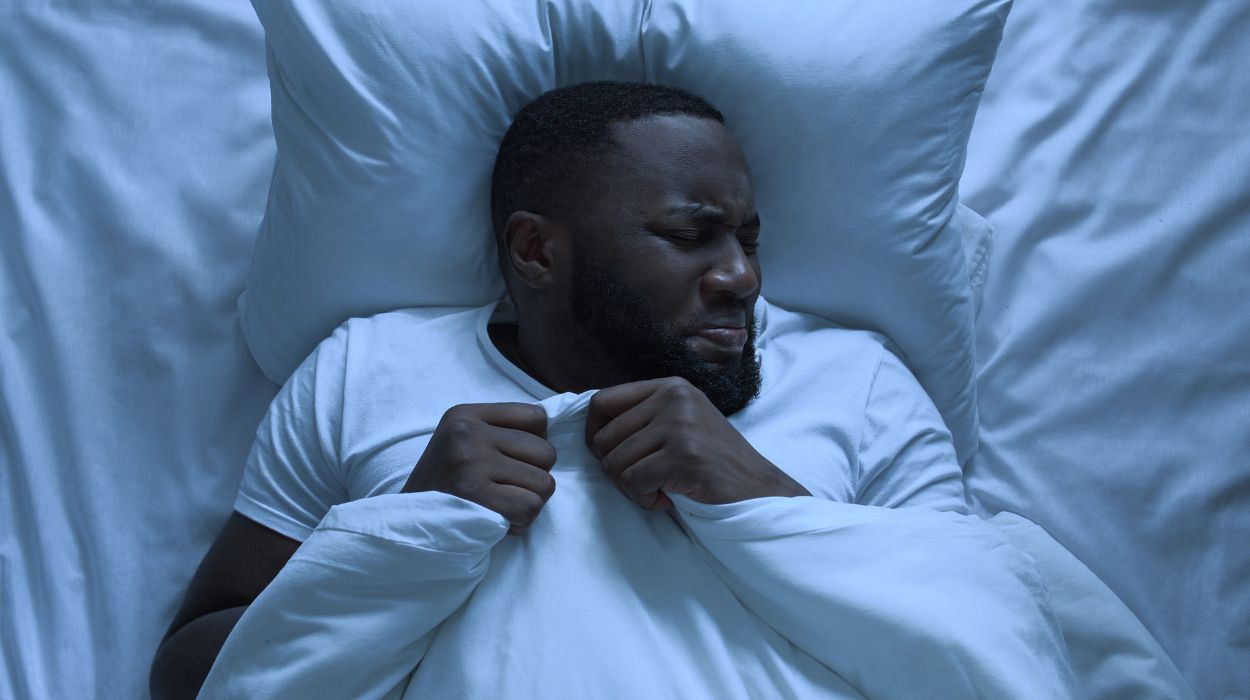
Sleep deprivation and elevated stress hormones can reduce the number of active immune cells[7] in the body. When there are fewer immune cells, the body has an impaired ability to defend itself against illness. Sleep promotes the synthesis of infection-fighting compounds called cytokines and supports a strong immune system.
Therefore sleep deprivation, one of the symptoms of depression, also means a reduced ability to fight infections.
Since a weakened immune system makes you more susceptible to illness, it also makes treatment of chronic diseases more difficult. A few examples are conditions where inflammation is common, such as type 2 diabetes and heart disease.
Weight Loss Or Weight Gain

When suffering from depression, a lack of motivation and a bad mood can significantly impact your diet habits, causing weight loss or weight gain. Some people also experience a loss of appetite, irritable bowel syndrome, and gastroesophageal reflux disease due to poor eating habits.
Most depressed people avoid exercise and make impulsive food choices. They prefer nutrient-dense fast foods to nutrient-rich healthy foods. Fast foods are high in starchy carbohydrates, sugar, and fat and low in fiber contributing to obesity.
Some antidepressant medications[8] can also cause you to pile on the pounds and make it harder to lose weight.
Treating Depression & The Physical Symptoms
Depression is a mental and physical condition frequently misdiagnosed. This is because most patients seek help only when physical symptoms appear. It is also commonly misdiagnosed as a medical illness or a physical disorder when these symptoms appear rather than a mental health condition.
As a result, most people with depression are frequently misdiagnosed or left untreated, worsening symptoms. When acute emotional symptoms subside, some doctors often consider the problem solved. Untreated physical symptoms increase the likelihood of relapse and allow depression to consume the patient undetected.
According to experts, tracking[9] emotional and physical symptoms is the best way to eliminate them while receiving treatment.
When To See A Doctor
People experience various depressive symptoms at varying intensities, so it’s not always easy to know when you should consult with your doctor. If your symptoms affect your ability to work, relationships, and quality of life, it’s time to see your doctor.
While it is easier to detect depression in younger people by noticing decreased activity and vigor for life, it can be more difficult to detect depression in adults whose symptoms may be mistaken for aging.
As a result, not everyone receives a formal diagnosis. Experts such as doctors and therapists can provide professional, personalized diagnoses to help determine the underlying problem and find the most appropriate solution and treatment.
Physician
A physician may conduct a comprehensive assessment, perform physical examinations, and do routine blood tests to determine the root cause of your symptoms.
Elimination[10] is a method of strategic diagnosis. Suppose your doctor doesn’t find any other medical causes, such as thyroid problems, vitamin and mineral deficiencies, medication side effects, or hormonal changes. In that case, they should screen for mental health conditions like depression.
Depending on the severity of the depression, a doctor may prescribe medication or refer you to a licensed mental health professional.
Therapist
A therapist can break down the details of your mental health and perform a formal diagnosis, including tracking the frequency of your depressive symptoms.
You can sign up for physical or online therapy to ensure you always have access to treatment, whether on the move or at home. Depression can be detected if you have symptoms daily for at least two weeks.
A therapist may also use the elimination method to rule out other potential causes, such as grief, trauma from abuse or injury, substance abuse, and life changes, such as divorce or pregnancy.
It may be prudent to consult a physician or mental health professional if you experience the following symptoms repeatedly:
- Loss of interest in social and recreational activities.
- Erratic emotional changes include increased sadness, emptiness, and hopelessness.
- Sudden loss or gain of appetite or weight.
- Sleep deprivation.
- Consistent lack of energy.
Summary
To answer the question, “Can depression make you sick?” the answer is yes, it is possible.
Since psychological and physical symptoms characterize depression, there is a possibility of misdiagnosis or detection failure. Left untreated, depression can worsen, leading to severe physical health problems such as stroke and heart attack.
Depressive symptoms are also interdependent, with fatigue causing headaches and vice versa. Effective depression treatment addresses both physical and psychological symptoms.
The standard treatments for depression are psychotherapy and medication. If you ever experience severe depressive symptoms, such as persistent fatigue, melancholy, or suicidal thoughts, seek professional help immediately, as untreated depression can be life-threatening.
+ 10 sources
Health Canal avoids using tertiary references. We have strict sourcing guidelines and rely on peer-reviewed studies, academic researches from medical associations and institutions. To ensure the accuracy of articles in Health Canal, you can read more about the editorial process here
- Han, C. and Pae, C.-U. (2015). Pain and Depression: A Neurobiological Perspective of Their Relationship. [online] 12(1), pp.1–1. doi:https://doi.org/10.4306/pi.2015.12.1.1.
- Goldsmith, D., Haroon, E., Woolwine, B.J., Jung, M.Y., Wommack, E.C., Harvey, P.D., Treadway, M.T., Felger, J.C. and Miller, A.H. (2016). Inflammatory markers are associated with decreased psychomotor speed in patients with major depressive disorder. [online] 56, pp.281–288. doi:https://doi.org/10.1016/j.bbi.2016.03.025.
- A Surah, Ganesan Baranidharan and Morley, S.K. (2014). Chronic pain and depression. [online] 14(2), pp.85–89. doi:https://doi.org/10.1093/bjaceaccp/mkt046.
- Corfield, E., Martin, N.G. and Nyholt, D.R. (2016). Co-occurrence and symptomatology of fatigue and depression. [online] 71, pp.1–10. doi:https://doi.org/10.1016/j.comppsych.2016.08.004.
- Cantarero, D. and Moreno-Mencia, P. (2022). The effects of gastrointestinal disturbances on the onset of depression and anxiety. [online] 17(1), pp.e0262712–e0262712. doi:https://doi.org/10.1371/journal.pone.0262712.
- Sbolli, M., Fiuzat, M., Cani, D. and O’Connor, C.M. (2020). Depression and heart failure: the lonely comorbidity. [online] 22(11), pp.2007–2017. doi:https://doi.org/10.1002/ejhf.1865.
- Beurel, E., Toups, M. and Nemeroff, C.B. (2020). The Bidirectional Relationship of Depression and Inflammation: Double Trouble. [online] 107(2), pp.234–256. doi:https://doi.org/10.1016/j.neuron.2020.06.002.
- Grundy, A., Cotterchio, M., Kirsh, V.A. and Kreiger, N. (2014). Associations between Anxiety, Depression, Antidepressant Medication, Obesity and Weight Gain among Canadian Women. [online] 9(6), pp.e99780–e99780. doi:https://doi.org/10.1371/journal.pone.0099780.
- Sequeira, L., Perrotta, S., LaGrassa, J., Merikangas, K.R., Kreindler, D., Deepa Kundur, Courtney, D.B., Szatmari, P., Battaglia, M. and Strauss, J. (2020). Mobile and wearable technology for monitoring depressive symptoms in children and adolescents: A scoping review. [online] 265, pp.314–324. doi:https://doi.org/10.1016/j.jad.2019.11.156.
- Roiser, J.P., Elliott, R. and Sahakian, B.J. (2012). Cognitive Mechanisms of Treatment in Depression. [online] 37(1), pp.117–136. doi:https://doi.org/10.1038/npp.2011.183.



